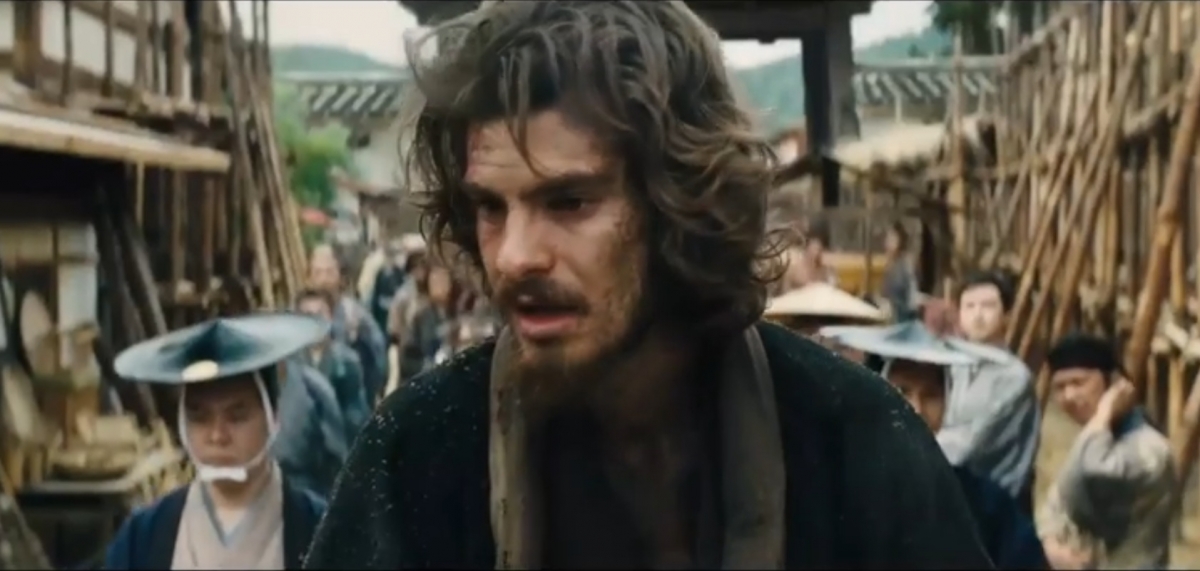By Laurie Coker
Rating: A-
Martin Scorsese’s ambitious film Silence, starring Liam Neeson, Andrew Garfield and Adam Driver, delves into Christian ministries to Japan in the 15th century. Scorsese, who co-wrote Silence with Jay Cocks, took nearly three decades to get this visually passionate epic journey to screens. The emotional impact of Silence resonates long after the final credits and opens of topics for thought and discussion.
Getting Silence to theaters has proven a lengthy pilgrimage for Scorsese. Based on the acclaimed 1966 novel by Shusaku Endo, Silence recounts the tale of two priests who travel at great peril to Japan during a time when Christianity was treated with violence and suffering. Fathers Francisco Garrpe (Driver) and Rodriques (Garfield) from Portugal travel into a land where they are criminals. The go in search of their mentor (Neeson) and in an effort to minister to Japanese Christians. They are met with misery as they travel and encounter secret pockets of practicing Christians in small villages. After the Shimabara Rebellion, Christianity was practiced only in secret — the Inquisitor and his troupes confiscated all related iconography and texts and anyone known or even suspected as devout was brutally tortured and was killed.
Silence is worthy of the praise. Even with a nearly three hour run time, Scorsese pacing never slows. He presents the priest’s plight vividly and his cast is outstanding. There are moments here that cause cringing – Issei Ogata (as the Inquisitor) portrays an antagonist like no other. With mere vocal variations and choice movements, Ogato exudes maliciousness. He is wholly detestable as he seems to get pleasure from his despicable task. As for Garfield (the character on which the story is driven) and Driver, their performances are award worthy. Beyond even what we saw from these men in Hacksaw Ridge (Garfield) and Paterson (Driver), they reach deeply and put forth visible expressive range. Neeson’s character is afforded limited screen time, but his moments on screen are fraught with anguish and emotion.
Notably, Cocks and Scorsese (Endo too) weave a balanced story, one that allows both the Japanese and the Christians to have a voice. It is as much about colonization and narrow-mindedness as it is belief and conviction. Whether we like what we see or believe what is touted is left completely up to us – the audience. The questions conjured by this film will be as varied as the film is long – different for every onlooker – as will the emotions evoked. The end, too, sends diverse tremors to various viewers. Whether we like it or not, we are challenged to think about the film’s themes, as they are relevant to us and to others – what they meant then and what they mean now.
Rodrigo Prieto’s cinematography, even in the bleakest scenes, is spectacular, Scorsese’s direction controlled and the performances (with the exception of a few accent issues) brilliant. Ogato’s samurai steals scenes in which he plays and offers up some ironic and painful humor, but it is on Garfiled’s slight shoulders that Scorsese most relies and he gives an impeccable performance. Some aspects of Silence are difficult to watch, painfully real and shocking, garnering an R-rating. Silence might well be Scorsese’s greatest opus and for it, I am placing an A- in my grade book.
